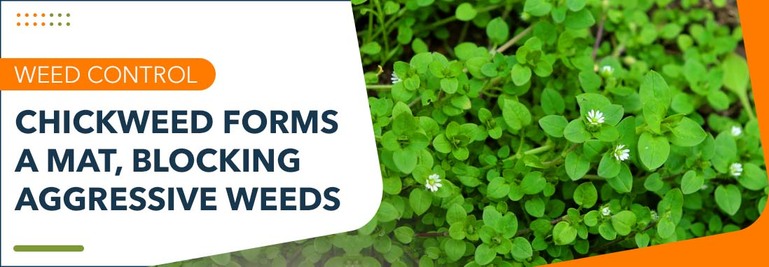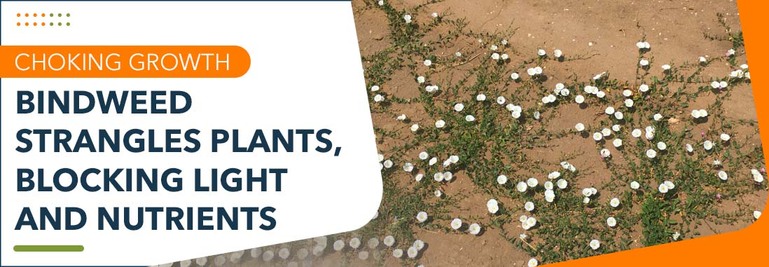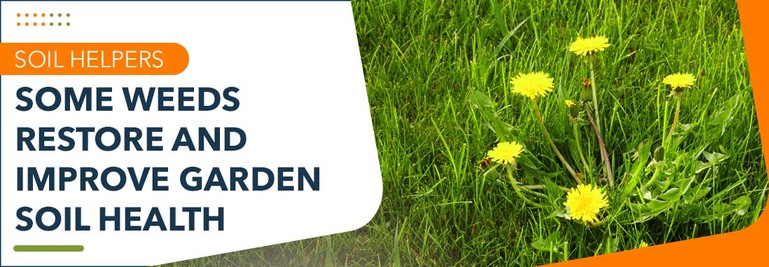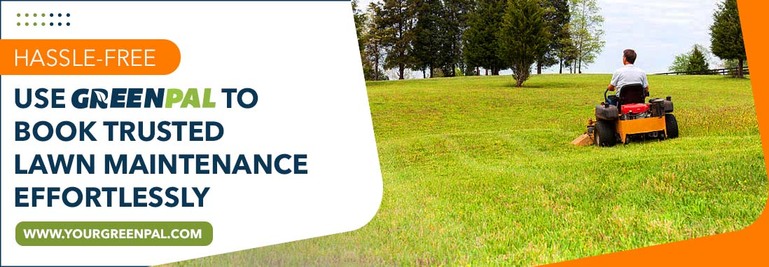Homeowners Share the Weeds They Leave Alone (Some are Actually Good)
.jpg)
Keeping weeds seems counterintuitive.
It's true: some weeds might help your lawn or garden. Failing to understand the difference between which weeds to pull and which to leave might be a disservice to your efforts and your goals, so we talked with homeowners to learn which weeds they're leaving and why. We asked them to share the one weed they were most likely to let stick around.
Of course, not all weeds are the same. Some are detrimental to your garden's health. They steal nutrients. They hamper the germination efforts of the plants you want. Some types even cause blisters and burns if touched.
We'll provide further context on which weeds to leave alone, why they can be helpful to your garden, and their characteristics.
Key Results
# Dandelions were voted (37 votes) as the most common type of weed homeowners were likely to keep around. |
# 34 survey takers (24.3%) said they don't allow any weeds to grow in their garden. |
# 25 homeowners (17.9%) placed Clover in the second spot for the best weed to keep around. |
But before discussing weeds in detail, it is worthwhile to consider why some weeds can be useful. Weeds can be pioneers on disturbed soils. They help to restore degraded or damaged soils and can:
Enhance your soil's health: many weeds have long taproots that draw nutrients up from the subsoil for other plants.
Reduce erosion: Weeds hold the soil together, reducing erosion.
Attract good bugs: Some weeds have flowers and can attract pollinators or predatory insects that help control the pests in your garden.
Many weeds grow in specific soil conditions, and their presence can reveal the chemistry of your garden. Is your soil too acidic or alkaline? Are nutrients in short supply?
Rather than launching an all-out assault on every weed in their garden, some homeowners are letting them stay.
Beneficial Weeds to Leave Alone

Dandelions
Many childhood memories swirl around, sending a dandelion's seed heads floating into weeds. They are one of the best-known weeds, and they truly are harmless.
Dandelions allow for better air and water movement through the soil. Their deep roots pull nutrients like calcium from deep in the soil and release them into the ecosystem when the dandelion dies and decomposes.
Their flowers are one of the first food sources for bees and other pollinators as they bloom early in the spring. Allowing dandelions to remain in your garden will nourish the soil and provide sustenance for local pollinators.
RELATED: Homeowners share how to get rid of weeds
Clover
Clover is another misunderstood plant that can benefit your lawn and garden. It's especially helpful if your lawn lacks nitrogen. Clover takes nitrogen from the air and concentrates it in the soil for other plants to use.
Low-growing clover also helps to cover bare patches of soil, which reduces erosion and shades out more aggressive weeds. Like dandelions, clover attracts bees and other beneficial insects with its flowers.
Plantain
Weeds can tell you a lot about your lawn's conditions. Plantain thrives in poor, compacted soil. There you go. Have plantain growing on your lawn? You might want to look into aeration.
Plantains, like dandelions, have deep roots perforating the earth to bring nutrients to the surface and pry open compact soil. Plantain is a renowned anti-inflammatory and has been treasured in herbal medicine for its healing qualities.

Chickweed
According to the Missouri Department of Conservation, "Chickweed is a wild edible plant you can feel good about eating, as it is nonnative and most people consider it a weed. Young, tender shoots are the best to eat raw as a salad green or cooked like spinach as a potherb."
Chickweed forms a tight mat of foliage that effectively suppresses more aggressive weeds while keeping the soil moist. Chickweed is rich in nitrogen and will store it in its roots over the winter, benefitting nearby plants. Leave it alone, and chickweed can cover bare patches in your garden, protect your soil, retain moisture, and even put a few entrées on the table.
RELATED: Homeowners Share How They Identify Weeds
Yarrow
Yarrow will grow almost anywhere. Small, white flowers provide nectar for pollinators and food for natural insect predators like ladybugs and lacewings, which can help limit garden pests.
Yarrow has been used in herbal medicine as an anti-inflammatory to help heal wounds. Good news: yarrow's presence indicates healthy and balanced soil. It can help improve nutrient availability in the soil.
If you leave yarrow in your garden, you'll provide a tiny ecology for plants and insects.
Weeds to Remove and Why
Some weeds are valuable to keep, while others can ruin your garden or lawn by spreading quickly and overtaking desirable plants. These are noxious weeds.

Bindweed
Bindweed strangles other garden plants and trees, depriving them of light and nutrients. When bindweed has become established, its deep root system makes it extremely challenging to eradicate, as very small pieces of root in the soil regrow into new plants.
It can reproduce from roots, stem fragments, rhizomes, and by seeds. These seeds can lie dormant in the soil for up to 50 years. It is spread by animals, drainage water, and machinery and is a crop seed contaminant.
Creeping Charlie
Creeping Charlie can be difficult to control. It's important to note that some homeowners may like keeping this invasive weed around. It's pollinator-friendly and has a minty smell. But, it does steal vital nutrients from other plants.
It forms dense mats that smother other plants and grasses. Creeping Charlie has a stalk-like structure that makes it resistant to removing its roots. Even a tiny bit left in the soil can regrow the weed.
Canada Thistle
Canada thistle is another invasive weed that can cause serious problems in the garden. It's aggressive. It spreads rapidly via roots and seeds. Eventually, these weeds form dense clusters and crowd out other plants.
Their spiny leaves and stems are painful to touch and make it difficult to remove without gloves — many report skin irritation if it touches their bare skin.
RELATED: Chemical-free Weed Control

Japanese Knotweed
Under the right conditions, Japanese Knotweed can rise up to eight feet in one month. It's considered one of the most invasive and destructive weeds globally. It spreads easily and can grow back from pieces of its root system. Any slight opening in a wall or foundation is all it needs to start poking its way along the ground.
It's best to call in a professional if you spot the weed. It is tough for even experts to get rid of completely, and it can be an ongoing battle that's often managed rather than eradicated.
%20-%20infographic.jpg)
Quick Summary
The goal of many gardeners is to keep weeds out. However, some weeds aren't invasive or detrimental. A handful support the overall health of a garden. We looked at five weeds homeowners kept around and shared a bit about their benefits — dandelions, yarrow, clover, chickweed, and plantain were voted the top picks to save.
Of course, there are those weeds that need to go. They cause real problems. Aggressive or noxious weeds, such as bindweed, creeping Charlie, Canada thistle, and Japanese knotweed, should be eliminated to protect you, your property, and your garden.
The key to ambitious weed control is balance: reap the benefits of some weeds and do away with the harmful ones to achieve a beautiful and ecologically sound garden.



 Share
Share











